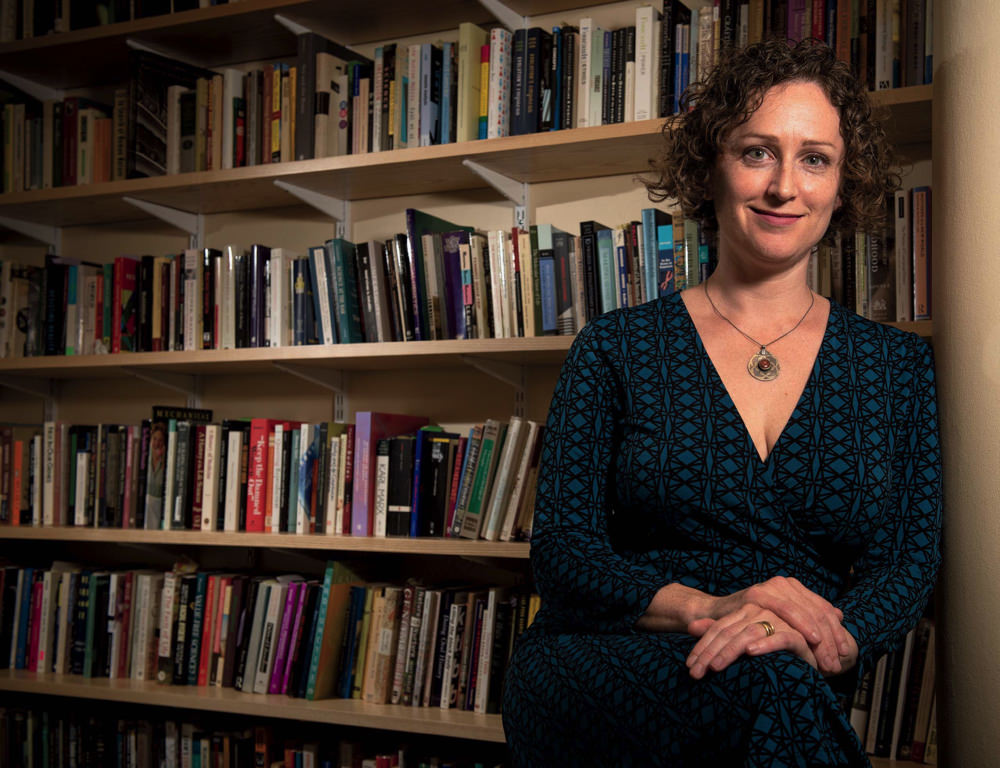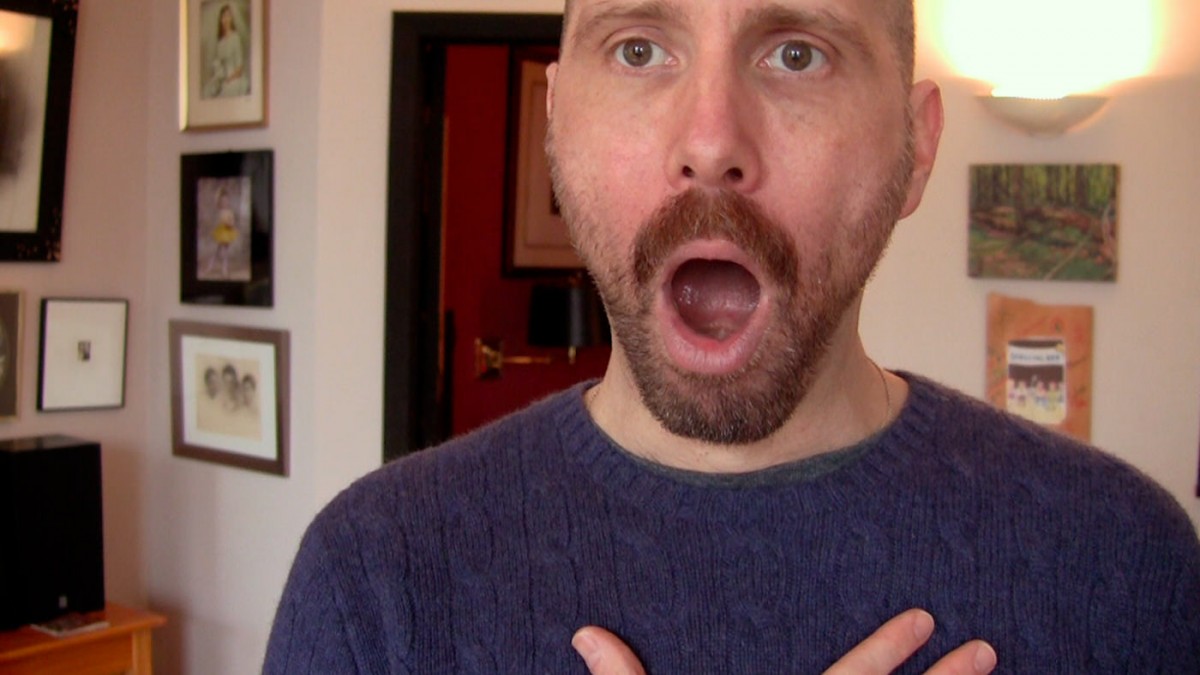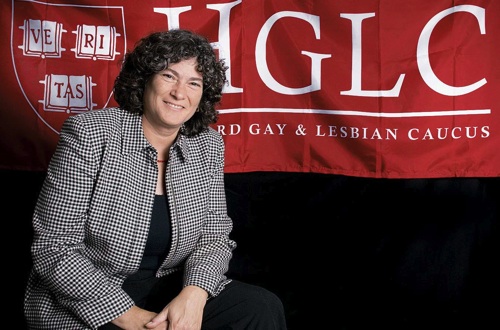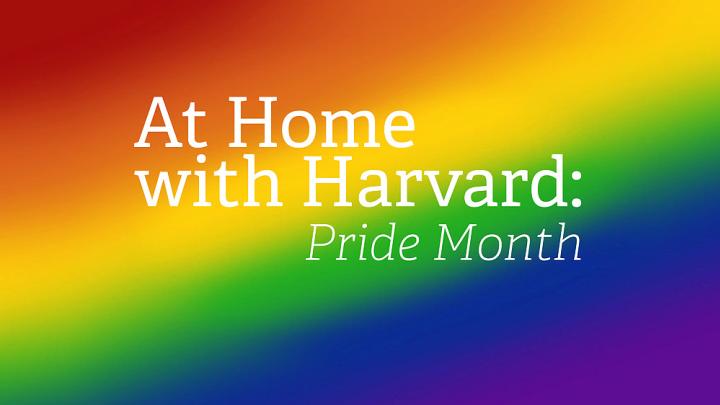This round-up is part of Harvard Magazine’s series “At Home with Harvard,” a guide to what to read, watch, listen to, and do while social distancing. Read the prior pieces, featuring stories the climate crisis, racial justice, health and fitness, and more, here.
A hundred years ago, a Harvard tribunal now known as the “Secret Court of 1920” was set up to investigate students suspected of being gay. Eight students were expelled, and a recent graduate and assistant professor were disaffiliated. A recent series organized by the Harvard Kennedy School marked the centennial of this dark history, first brought to light by a 2002 investigation by The Harvard Crimson. To mark this year’s Pride Month, we’ve compiled this short list of stories about LGBTQ life, research, and history at Harvard—now alma mater of and site of a community far more visible, diverse, and embraced than it was a century ago.
“For me, each football game, each mixer, was a time of enormous self-conscious anxiety. Many other gay Harvard undergraduates were at least vaguely interested in girls and able to put up a front without too much angst. And some were not quite so naive as I was, or quite so intent on being the red-blooded American boy. Most of those guys were in Adams House. (Or so at least I have later come to surmise.)”
Andrew Tobias ’68 wrote “Gay Like Me: In and Out of the Closet at Harvard” for our January-February 1998 issue, a first-person narrative recalling his and other friends’ experiences grappling with their sexual orientation while at Harvard. Some were openly gay, while many kept the information to themselves. Tobias’s recollections are riveting and very much worth reading.
~Kristina DeMichele, Digital Content Strategist

Computer artwork by Alfred Pasieka/Science Source
I enjoy this piece about the lack of a single “gay gene.” “Though genes seem to play a role in determining sexual orientation and same-sex behavior,” writes Bennett McIntosh, “it’s small, complex, and anything but deterministic.” It delves into the complexities surrounding the existence of such a gene. Around the time of the Stonewall Riots, opponents of the gay-rights movement claimed that homosexuality was a choice, and that people were “seduced into the gay lifestyle.” A common retort—“Born this way”—became something of a biological argument. Though some embrace this search for these genetic determinants, others think looking for such genes are counterproductive. Some have warned that a search for genetic causes could pathologize same-sex behavior, recalling the days of when homosexuality was listed in the American Psychiatric Association’s Diagnostic and Statistical Manual of Mental Disorders.
~Jacob Sweet, Staff writer/editor

Sarah Richardson
Photograph by Stu Rosner
It’s now widely accepted that the idea of gender is not innate, but socially constituted. Could the same be true, at least in part, of sex? “The Science of Sex,” a recent Harvard Magazine cover story about historian of science and philosopher Sarah Richardson, covers more than you ever thought could be known about biological sex. “How did the X and Y chromosomes come to be seen as the essence of biological sex?” asks writer Bennett McIntosh. “What does that history mean for the researchers who study them—and everyone who carries them in their cells? How can medical research account for the distinct but entangled influences of sex and gender? For Richardson, these questions cannot be answered without interrogating the assumptions embedded in the very words used to ask them.”
“Fifty years ago, every state criminalized homosexual sex, and even the American Civil Liberties Union did not object,” writes Harvard Law School professor Michael Klarman in “How Same-Sex Marriage Came to Be,” our 2013 feature on marriage equality. “Last November,” he wrote then, “for the first time, a majority of voters in a state—in fact, in three states—approved same-sex marriage.” And today—well, we know the rest. From the U.S. Supreme Court’s 2015 decision that made marriage equality the law of the land, to its ruling earlier this week that federal civil-rights law protects gay and transgender people from employment discrimination, LGBTQ rights have become mainstream with surprising and inspiring speed. Klarman covers the history of activism, litigation, and legislation that brought us there.

Robert Reid-Pharr
Courtesy of Robert Reid-Pharr
In the last several years, Harvard has hired its first professors appointed solely in women, gender, and sexuality (WGS)—faculty members appointed in WGS before 2017 all have had a joint appointment in another department. Our former Steiner Undergraduate Fellow Brandon Dixon ’19 covered one of these new faculty members, Robert Reid-Pharr, a renowned scholar who has written widely on black American and African-American diasporic gender and sexuality. That same year, I wrote about Durba Mitra, another recent WGS faculty hire who is doing fascinating work on gender, sexuality, and colonialism in South Asia (her first book, Indian Sex Life, was published by Princeton University Press earlier this year).
~Marina Bolotnikova, Associate Editor

In the film, David Thorpe does voice exercises designed to make him sound "less gay."
Photograph courtesy of IFC Films
After coming out as a college sophomore in the late 1980s, David Thorpe ’91 spent years writing about his experience being gay, and eventually found himself asking what turned out to be a complicated question: Do I sound gay? (Short answer: yes, but the real answer is longer.) The discomfort and self-consciousness surrounding that idea led Thorpe into an exploration of identity and, in 2015, to a documentary of the same name: Do I Sound Gay? “On the one hand, the gay voice is something that everyone wonders about and reacts to privately,” one of the film’s funders told former Steiner Undergraduate Fellow Zara Zhang ’17 for this story. “And yet, nobody talks about it publicly, even within the gay community, though many gay men have tremendous anxieties about it.” Zhang laid out several of the film’s insights, and perhaps the most important is this: the real question the film seeks to answer is not whether Thorpe sounds gay, but rather why he should feel bad about it, and what that says about our culture.
~Lydialyle Gibson, Associate Editor

Rhonda Wittels
Photograph by Stu Rosner
At the twenty-fifth anniversary of the Harvard Lesbian and Gay Caucus (HGLC; now the Harvard Gender and Sexuality Caucus), alumni and faculty discussed the history of the University’s treatment of gay and lesbian students. Though today’s students largely find the community accepting, the response is far from the traditional norm. I enjoyed this article about the caucus’s progress in the past few decades—from amending the University’s nondiscrimination policy to extending employee benefits to same-sex couples.
~Jacob Sweet, Staff writer/editor
More from “At Home with Harvard”
- Spring Blooms: Your guide to accessing the Arnold Arboretum as the seasons turn in Boston
- Harvard in the Movies: Our favorite stories about Harvardians on screen
- The Literary Life: Our best stories about the practice and study of literature
- Night at the Museum: Our coverage of Harvard’s rich museums and collections
- Nature Walks: Walking, running, and biking in Greater Boston’s green spaces, even while social distancing
- Supporting Local Businesses: Our extensive coverage of local restaurants and retailers, and how you can support them during this time of crisis
- Medical Breakthroughs: Our best stories going deep into the ideas and personalities that will shape the medical care of tomorrow
- Rewriting History: From race and colonization to genetics and paleohistory, our favorite stories about the people reshaping the study of history
- The Climate Crisis: Highlights from our wide-ranging coverage of the environment
- Crimson Sports Illustrated: With 2020 winter sports ending early and the spring collegiate season wiped out almost entirely, we look back at Crimson highlights from past years.
- The Real History of Women at Harvard: Stories covering the admission of women, the Harvard-Radcliffe merger, the rise of women in the faculty ranks, Harvard’s first woman president, and more
- The Undergraduate: Our favorite student essays on the undergraduate experience
- The Secret Lives of Animals: From zoology and evolutionary science to animal-rights law to the joys of local wildlife, a selection of our favorite animal stories
- Harvard on the Small Screen: Our coverage of the creators, writers, and actors in your favorite TV shows
- Extraordinary Lives: From our “Vita” section, extraordinary profiles of authors, artists, activists, and more
- Great Legal Minds: Our favorite stories on the minds reshaping American law
- Harvard History through a New Lens: Some of our most notable stories about obscure, dark, or surprising episodes in Harvard’s history
- Health and Fitness: Our extensive coverage of Harvard’s breakthough health and wellness research








